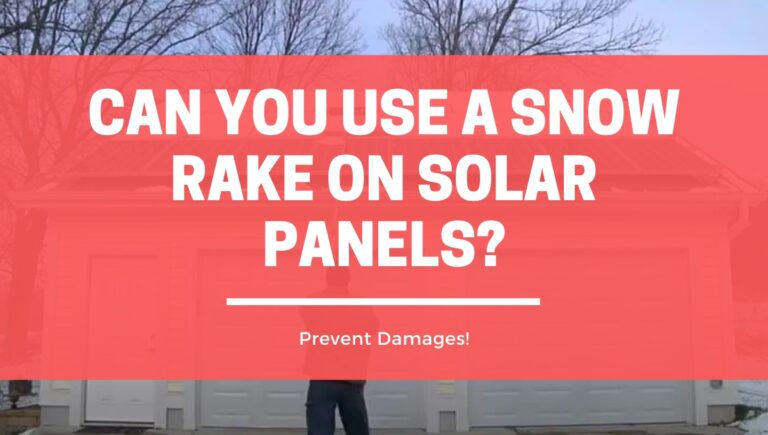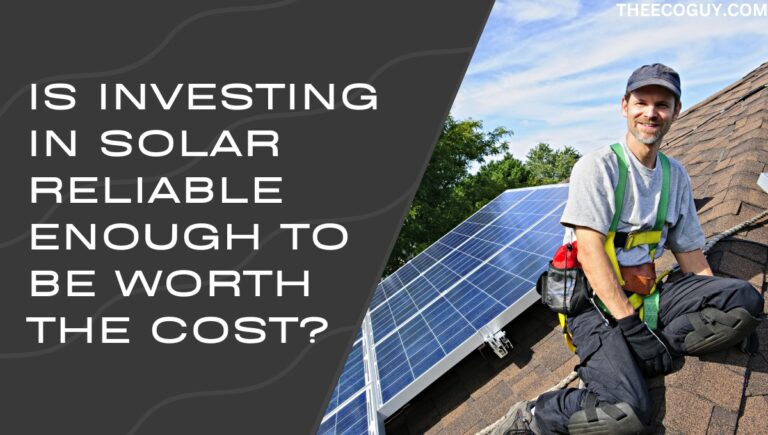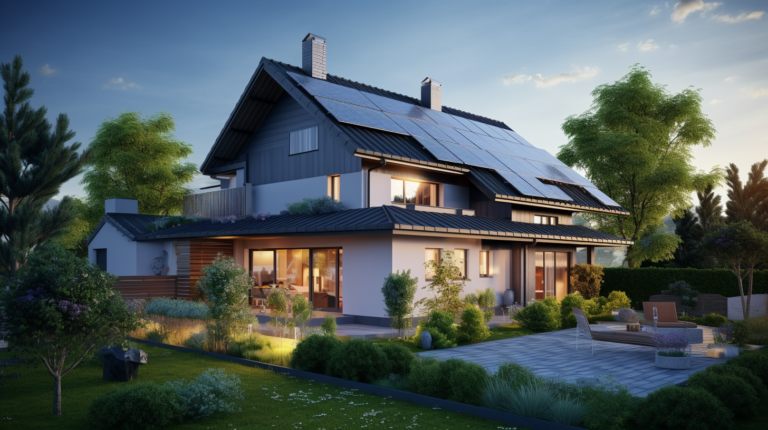How Can Solar Energy Help Me Save Money? (It Saved me 92%)

Are you looking for ways to save money on your electricity bills? Solar energy could be the answer.
Solar energy can be a great way to save money on your electricity bills each month. You’ll gain cost-saving advantages such as government incentives, manufacturer rebates, and tax credits when switching over to a solar system in your home!
This blog article will explore how solar energy can help you save money and why it is becoming an increasingly popular choice among homeowners.
What Is Solar Energy and How Can It Help You Save Money?
Solar energy is an increasingly popular choice for homeowners looking to save money on their electricity bills. Solar energy harnesses the power of the sun to generate clean, renewable electricity that can be used in place of traditional sources like coal and natural gas.
Solar energy offers cost savings and a range of other benefits, including reduced greenhouse gas emissions, increased reliability, and government incentives for those who install solar panels.
Solar energy can help homeowners save money in several ways. Firstly, installing solar panels can drastically reduce electricity bills as it eliminates the need to purchase electricity from traditional sources such as coal and natural gas. Depending on the size of the solar array, homeowners could see their electricity bills decrease by up to 70%.
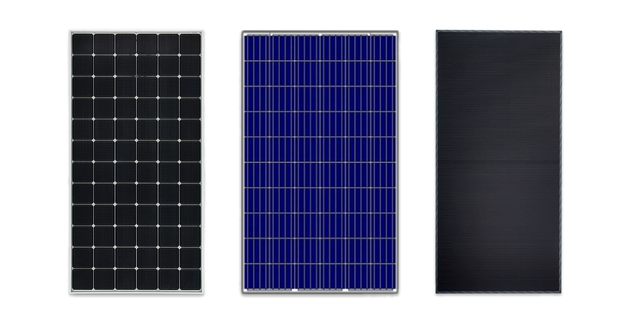
What Are the Different Types of Solar Panels Available, and Which Is Right for You?
When it comes to solar energy, there are many different types of panels available that can help you save money on your electricity bills. From monocrystalline and polycrystalline panels to thin-film cells, each type has its own unique advantages and disadvantages. When selecting the right type of panel for your home, it’s important to consider factors such as efficiency, cost, and installation requirements.
Monocrystalline panels are typically the most efficient, but they may also be more expensive than other types. Polycrystalline panels are less efficient, but they are usually cheaper.
Thin-film cells offer a more affordable option, but they may not be as efficient as monocrystalline and polycrystalline panels. When it comes to selecting the correct solar panel for your home, both your requirements and the roof should be taken into consideration.
How Much Space Do You Need for a Home Solar System?
When considering a home solar system, it is important to understand how much space you need for the installation. The amount of space required will depend largely on how much energy you want to generate and how many solar panels you plan to install.
Generally speaking, you can expect to need at least 100 square feet of roof or ground area in order to install a typical small-scale solar system. Larger systems may require more space, so it is important to plan accordingly and make sure you have enough room for the installation.
When looking at roof-mounted systems, there are certain factors that can affect your available space. The direction of the roof’s slope as well as any obstacles such as chimneys, vents, or skylights need to be taken into consideration.
You also need to make sure your roof is large enough and in good condition to handle the solar array. If you don’t have an adequate amount of space for a rooftop system, ground-mounted solar structures may be a better option.
Are There Financial Incentives for Investing in Solar Power?
Investing in solar energy can be a smart decision – not only will you save money on your electricity bills, but the financial incentives available for making the switch make it an even more attractive option. In addition to reduced electricity costs, homeowners may be eligible for tax credits and other rebates that help offset the cost of installation.
Some states even offer additional incentives such as net metering or renewable energy credits that can further reduce the cost of going solar. Furthermore, many utility companies provide special rates for customers with rooftop solar panels. By taking advantage of these various incentives, you could potentially save thousands over the lifetime of your system.
What Are the Pros and Cons of Installing a Home Solar System?
Installing a home solar system comes with several advantages and disadvantages. On the plus side, going solar can drastically reduce energy bills as it eliminates the need to purchase electricity from traditional sources. Additionally, homeowners may be eligible for tax credits and other rebates that help offset the cost of installation. Moreover, many utility companies provide special rates for customers with rooftop solar panels.
On the downside, installing a home solar system is expensive and requires a considerable amount of space. Additionally, there can be some complications involved in obtaining the necessary permits for installation. Ultimately, it’s important to do your research before making a decision as to whether or not solar energy is right for you.
Why Is Installation the Most Important Part of Going Solar?
Installing a home solar system is essential for taking advantage of renewable energy and saving money on electricity bills. Without the proper installation, a solar system cannot produce energy efficiently, thereby making it difficult for homeowners to realize any of the potential savings associated with going solar.
When looking for a responsible solar installation company, it is essential to ensure that all of your system’s components are put in properly and function at maximum capacity. Professional installers will consider details such as the direction of your roof if any trees nearby cast shadows over it, or any other elements which can influence energy production. Moreover, they can also guide you through local permitting processes so that everything goes smoothly.
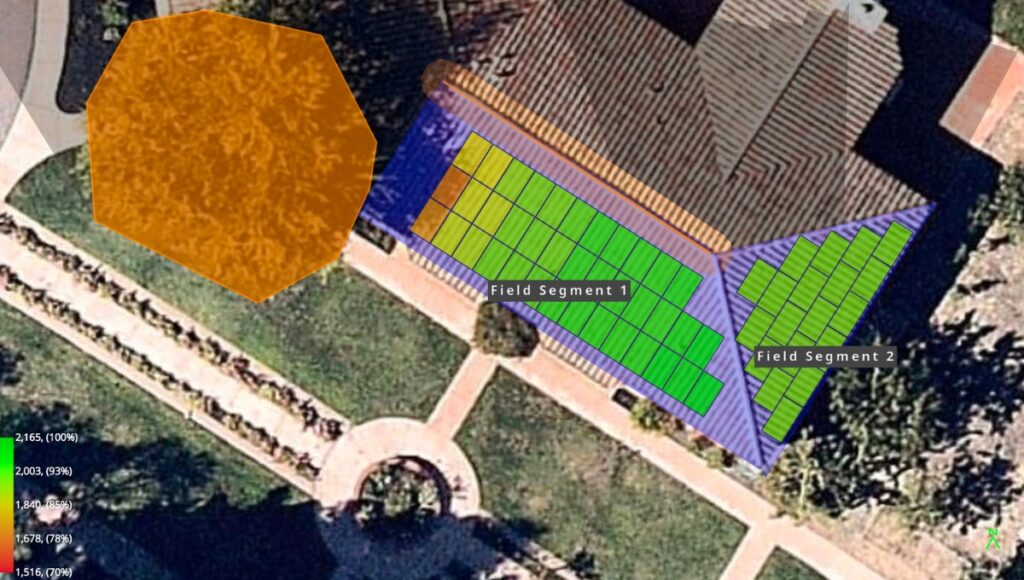
How Can Homeowners Calculate Their Potential Savings With Solar Power?
Before investing in a home solar system, it’s important to understand how much you could potentially save with such an investment. By taking into account factors like the local climate and available space, homeowners can calculate their potential savings with solar power and make an informed decision about whether going solar is right for them.
With HelioScope, a PV design software, solar installation companies can calculate an estimate of energy production based on your roof and the type of solar panels you choose. Additionally, online solar calculators can be used to estimate potential savings and compare the cost of solar with residential electricity prices. With such information, homeowners can make an informed decision about whether or not investing in solar energy will result in long-term savings.
What Maintenance Tips Should Be Followed to Keep Your Home’s Solar System Running Efficiently?
To keep your solar system running efficiently, it’s important to follow routine maintenance tips. Solar panels should be kept clean and free of debris or dust that can interfere with their ability to absorb sunlight. Homeowners should also inspect the wiring for signs of damage such as corrosion and make sure all connections remain tight.
Finally, it is important to hire a licensed solar electrician for any repairs or maintenance that may be necessary. By taking these steps and following proper maintenance tips, homeowners can enjoy the benefits of their home solar system for many years to come.
What Safety Considerations Should Be Taken Into Account When Installing a Home Solar System?
Safety should always be taken into account when installing a home solar system. It is important to check that all components are installed properly, as even small mistakes can lead to safety risks. Before installation, it is essential to review local building codes and regulations to ensure that the system meets safety requirements.
Furthermore, it is important to only hire certified professionals who have the necessary experience to install a solar system correctly.
Where Is the Future Headed With Residential Solar Power Systems?
The future of residential solar power systems looks very promising. Solar energy is becoming increasingly affordable due to technological advances, government incentives, and falling installation costs.
As a result, more homeowners are turning to solar as an alternative source of electricity that can help them save money on their monthly utility bills. Additionally, the development of smart home technology has made it easier for homeowners to monitor and optimize their solar system’s performance in real-time.
With these advancements, more households are likely to switch over to solar in the coming years as they realize the financial benefits associated with going green.
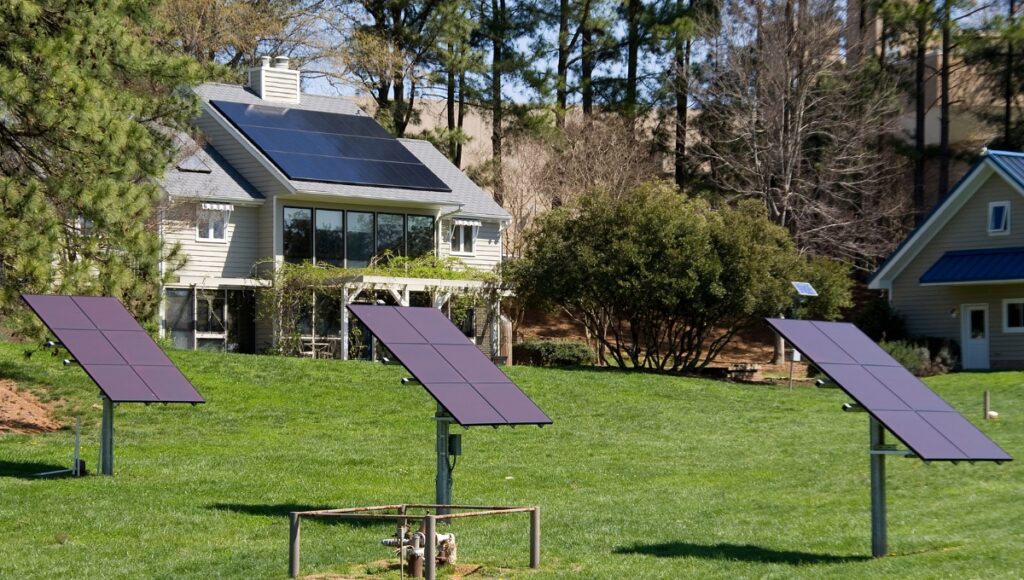
What Are Some Differences Between Rooftop and Ground-Mounted Solar Systems?
Rooftop and ground-mounted solar systems are two of the most popular types of solar installations for homes. While both offer advantages, there are some key differences that homeowners should consider when deciding which type is best for their needs.
Rooftop systems typically require less land space than ground-mounted ones, as they can be installed directly on the roof itself. However, rooftop systems may not be suitable in areas with frequent storms or high winds due to potential damage from debris or strong gusts of wind.
On the other hand, ground-mounted solar panels can often produce more energy since there may be fewer obstacles to block the sun’s rays. Additionally, with a ground-mounted system, homeowners can source higher-quality materials that may be more robust and longer lasting than those used in rooftop systems.
They also provide a greater degree of flexibility in terms of installation location and orientation compared to rooftop systems which must be installed according to certain restrictions based on roof size and shape. If you’re a homeowner who doesn’t have the luxury of space for a ground-mounted system, it’s important to consult with your solar installer regarding your specific requirements and available area.
How Can I Find the Right Installer for Residential Solar Systems?
When looking for the right installer for a residential solar system, it is important to research local companies thoroughly. Start by finding out which installers are in your area and make sure they have a valid license and insurance. It can also be beneficial to read customer reviews and speak with past customers regarding their experience with the company.
Additionally, it is important to request quotes from multiple installers and to compare the services, warranties, and prices they offer. This will help you find the best installer for your needs at a price that fits within your budget. Taking these steps can ensure that you get a quality installation with excellent customer service.
Are There Alternatives to Home Solar That Rely on Renewable Energy?
Absolutely! Depending on where you live, there might be Community Choice Aggregations (CCAs) available. CCA’s are programs that allow customers to purchase electricity from renewable energy sources, such as wind and solar, alongside traditional utility companies.
Investigating if CCA’s are available in your area is vital to deciding whether or not this option is suitable for you. Opting into a CCA program might be the perfect solution to take advantage of renewable energy without incurring the large, up-front costs associated with installing solar panels.
Wrapping It Up
Solar energy is a great way to save money and reduce your carbon footprint. With advancements in smart home technology, monitoring and optimizing solar systems has become easier than ever. Whether you choose rooftop or ground-mounted panels, the right installer can help ensure that your system is installed correctly with quality materials for maximum efficiency.
Additionally, there may be Community Choice Aggregations available in certain areas that allow customers to purchase electricity from renewable sources without installing their own solar system. Whatever option you decide upon, taking advantage of all the benefits offered by renewable energy can bring more savings into your pocket while also helping protect our planet’s future!

